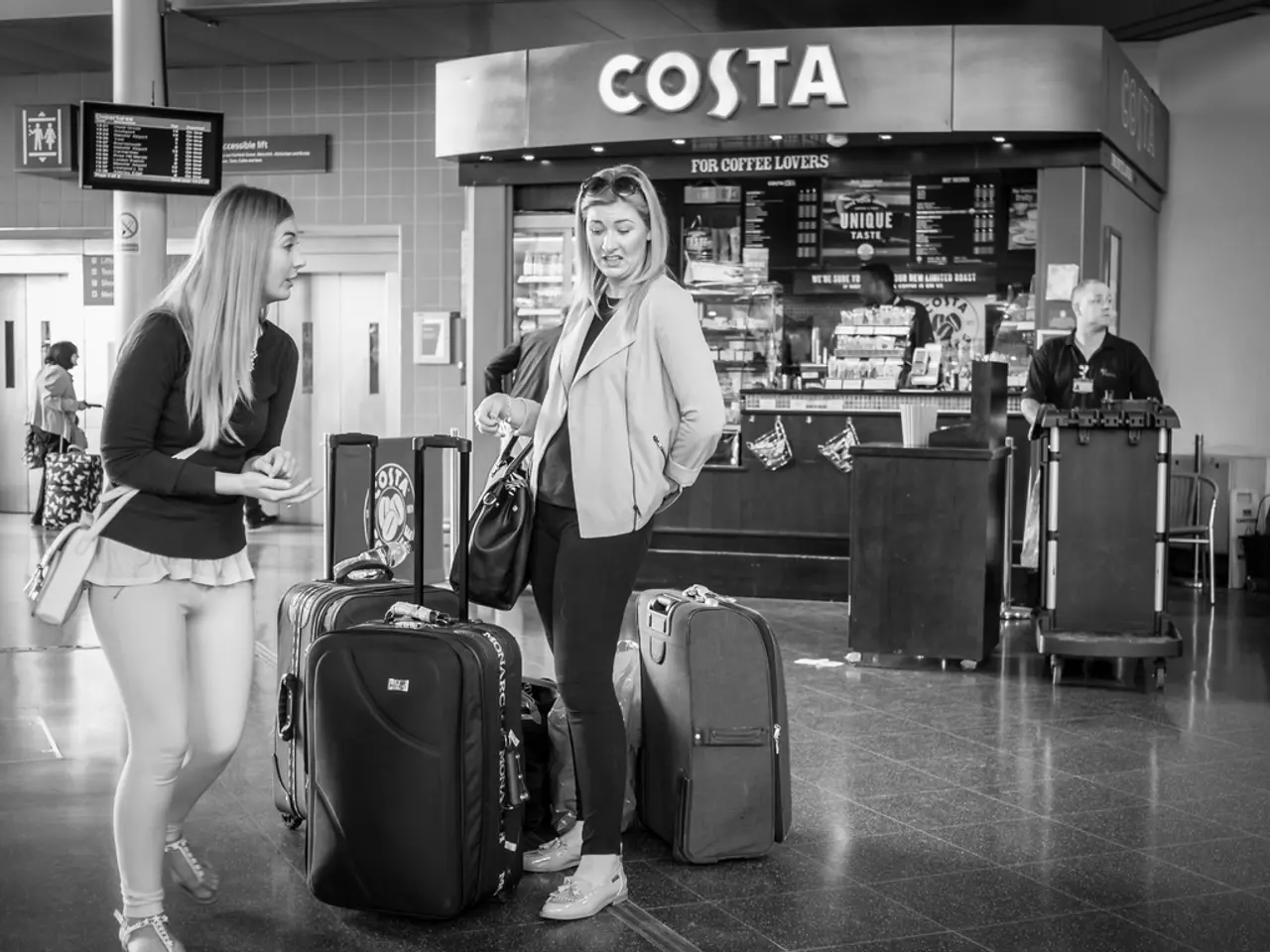Struggling Four-Star Airport BER Experiences Decline
Berlin's BER airport, handling over 22.5 million passengers last year, has been grappling with several issues, including a night flight ban and a contentious air traffic tax that has raised concerns among airlines and airport operators. Aletta von Massenbach, CEO of Flughafen Berlin Brandenburg GmbH (FBB), has been vocal about the impact of the tax on the competitiveness of German airports within the European aviation market.
## Arguments Against the Current Air Traffic Tax
The air traffic tax, which increases the cost of flying, can lead to higher ticket prices and reduced demand, especially among price-sensitive travellers. This could make Germany a less attractive departure or arrival point. Moreover, the tax creates a competitive disadvantage for German airports, as other European countries either have lower air traffic taxes or none at all. This may encourage airlines and passengers to opt for airports in neighbouring countries with lower tax rates, leading to potential traffic losses for German hubs.
The tax can also discourage airlines from expanding routes or increasing flight frequencies to and from Germany, limiting connectivity options for passengers and businesses. This could potentially harm Germany’s role as a central aviation hub in Europe. Airport operators like FBB warn that declining passenger numbers and flight operations can lead to job losses not only at airports but also in related sectors such as tourism and logistics, impacting the broader regional economy.
## Effects on Competitiveness of German Airports
Traffic diversion to foreign airports, where taxes and fees are lower, is a significant concern. This reduces passenger flow and airline operations at German airports. Moreover, reduced attractiveness may threaten the status of German airports as key hubs in Europe, leading to diminished market share and influence. Lower traffic volumes can also constrain the ability of airports to invest in infrastructure, services, and innovation critical for long-term competitiveness.
Aletta von Massenbach assures that Ryanair does not aim for continuous nighttime operations at BER. Delays in baggage collection at BER have been significantly reduced, with incidents occurring in only one out of ten cases. In the first half of 2025, BER handled 12.1 million passengers and 92,500 take-offs and landings. The German air traffic tax makes a flight from Berlin more expensive than from Warsaw or Prague.
BER has received four stars from the consulting firm Skytrax, similar to hotel ratings where five stars are rare. The airport CEO, Aletta von Massenbach, expects a four percent increase in passenger numbers for the current year. 11,000 lamps at BER have been replaced with energy-saving LED lighting, and waiting times for baggage collection have returned to a normal and acceptable level.
The airport company FBB increased its turnover by 163.7 million euros to 645.7 million euros in the current business. The airport, originally scheduled to cost two billion euros and open in 2011, was delayed until October 2020 and cost more than seven billion euros. BER was named the airport that has improved the most, according to an unspecified source.
The company is in debt to banks to the tune of around two billion euros. Aletta von Massenbach maintains the goal of a CO-neutral airport by 2045. Solar panels have been installed on the roofs of three parking garages at BER. The airport CEO, Aletta von Massenbach, does not plan to apply for a relaxation of the night flight ban at BER immediately. 70 airlines fly from BER to 150 destinations in 50 countries.
- The air traffic tax, leading to higher ticket prices, could make Germany a less desirable destination for price-sensitive travelers, potentially decreasing passenger flow at German airports like Berlin's BER.
- The competitive disadvantage created by the air traffic tax may prompt airlines and passengers to choose airports in neighboring countries with lower tax rates, potentially resulting in traffic losses for German hubs.
- Airport operators like FBB are concerned that the tax could limit airports' ability to invest in infrastructure, services, and innovation necessary for long-term competitiveness.
- The tax may discourage airlines from expanding routes or increasing flight frequencies to and from Germany, which could negatively affect Germany’s role as a central aviation hub in Europe, impacting both the economy and connectivity options for passengers and businesses.




